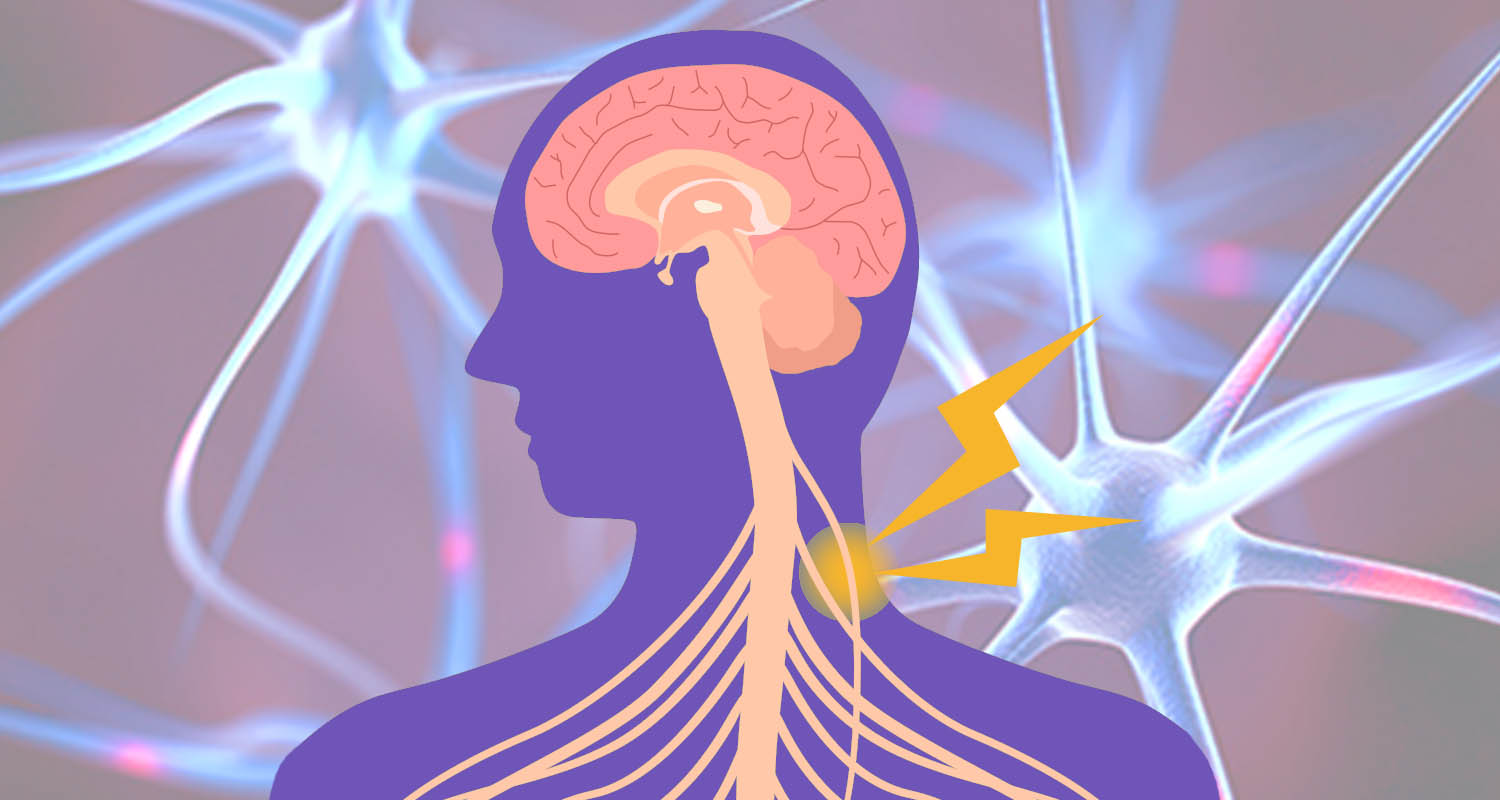
Why is it that you might have trouble remembering where you left your keys, but you can remember the juiciest steak you ever had? A new study[ref url=”https://www.nature.com/articles/s41467-018-04639-1″] reveals why food is so prominently logged in your memory. It turns out your vagus nerve acts like a GPS between your gut and the memory center in your brain, another reason to keep it in tip-top shape. (An out-of-whack vagus nerve can leave you with inflammation, a compromised immune system, anxiety, and mood swings.)
Related: Get free guides, ebooks, recipes and more to supercharge your health
What is the vagus nerve?
The vagus nerve is your body’s longest nerve — it extends from your brain all the way into your gastrointestinal tract. It functions like a superhighway, transmitting biochemical signals in both directions. In this way, it’s responsible for telling your brain when your stomach is full.
How does the vagus nerve affect memory?
A University of Southern California study has demonstrated how the vagus nerve network also impacts your memory, helping you remember what you ate. “When animals find and eat a meal, for instance, the vagus nerve is activated and this global positioning system (GPS) is engaged,” says co-author Scott Kanoski, assistant professor of biological sciences at USC Dornsife.
Researchers analyzed the gut-brain vagus nerve pathway of rats and found that when the pathway was disconnected, the rodents didn’t remember key information about their environment. “We saw impairments in hippocampal-dependent memory when we cut off the communication between the gut and the brain,” says lead author Andrea Suarez, a PhD candidate in biological sciences at USC Dornsife. “These memory deficits were coupled with harmful neurobiological outcomes in the hippocampus.”
The scientists say their findings raise the possibility that bariatric weight loss or other surgeries affect memory by blocking gut-to-brain signaling, and that more research is needed. What is clear from the study is that the vagus nerve is vital to critical body functions, including memory.
4 ways to support your vagus nerve
Here are some strategies to make sure your vagus nerve is in tip-top shape:
Try deep breathing: The link between breathing and heart rate, which is controlled by the vagus nerve, is well-established.[ref url=”https://journal.chestnet.org/action/consumeSharedSessionAction?JSESSIONID=aaaV7Vzw3aX1lcRrgHlow&MAID=MSI5V3enkQI8On%2FusQpC9A%3D%3D&SERVER=WZ6myaEXBLGCStFnotvlaQ%3D%3D&ORIGIN=994839492&RD=RD&rtc=0″] Yoga breathing and guided breathing exercises, which tone the vagus nerve to work like a well-played instrument, can calm your heart rate and lower your blood pressure.[ref url=”https://www.ncbi.nlm.nih.gov/pmc/articles/PMC3705176/”]
If you are in panic mode, try this box-breathing technique to prompt your vagus nerve to release acetylcholine, which will calm you down.
- Inhale for a count of four.
- Hold for a count of four.
- Exhale for a count of four.
- Wait for a count of four.
- Repeat until your hands are back on the controls.
Expose yourself to colder temperatures: Acclimating to the cold stimulates your vagus nerve, which in turn, calms your nervous system. Studies show that regular doses of cold temperatures — think an extremely cold shower — reduce stress markers.[ref url=”https://www.ncbi.nlm.nih.gov/pubmed/18785356″] If you live in a cold winter climate, this is a great reason to take a walk outside on a frigid day. Otherwise, you can also try cryotherapy in a frigid cryochamber, a human-sized tank filled with nitrogen-cooled air.
Maintain a healthy gut: Because the vagus nerve connects your brain to your gut, it’s imperative that you do what you can to maintain a healthy gut microbiome. Remember, the vagus nerve is a two-way street and biochemical signals go in both directions. So, support your gut with probiotics and fermented foods. You can also get a comprehensive microbiome test like Viome, an at-home kit which reveals the status of your gut. You can then work with a functional medicine doctor to bring your gut back into balance if it’s out of whack.
Sing to self-soothe: In a Bulletproof Radio (iTunes) podcast episode, Stephen Porges, MD, shares his theory called the Polyvagal Theory – which proposes that your body’s survival mechanism (flight-or-fight response) is inextricably linked to your vagus nerve. Porges says you want to do everything you can to maintain vagus nerve status-quo so that you can combat flight-or-fight mode. “Singing or playing wind instruments forces you to exhale slowly.” Porges likens this to yoga breathing, which has the same calming effect on the vagus nerve.
Related: How to Strengthen Your Vagus Nerve to Upgrade Your Whole Body










